7 Fermented Foods That Aren’t as Gut-Friendly as You Think And 9 That Truly Help Your Digestion

Fermented foods are often celebrated for their potential benefits to gut health. However, not all fermented foods are created equal. While some are indeed beneficial for digestion, others may not offer the probiotic benefits one might expect. This comprehensive guide explores seven fermented foods that aren’t as gut-friendly as commonly believed, alongside nine that are genuinely supportive of digestive health. Through engaging descriptions and thoughtful insights, this article aims to provide clarity on which fermented foods to embrace and which to approach with caution, ensuring a more informed and health-conscious dietary choice.
1. Store-Bought Pickles (Shelf-Stable)

Store-bought pickles, often found on grocery shelves, might not be the probiotic powerhouse you expect. Typically made with vinegar and heat pasteurized, these pickles lack the beneficial bacteria found in their brined counterparts. Crunchy and tangy, they appeal to the taste buds but fall short in probiotic content. Vinegar is used to create the desired sourness, unlike the traditional fermentation process that encourages the growth of good bacteria. For true probiotic benefits, opt for pickles stored in the refrigerated section, as these are usually fermented and brined naturally.
2. Sauerkraut in a Can or Jar (Unrefrigerated)
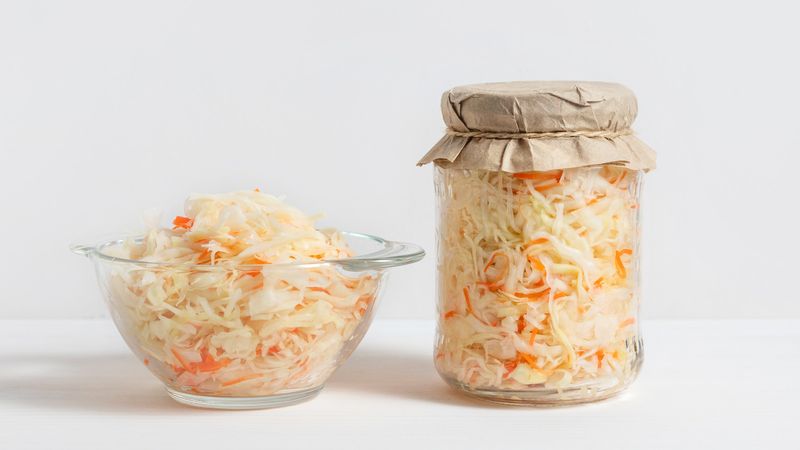
Unrefrigerated sauerkraut in a can or jar is often pasteurized, which means it lacks live bacteria. While offering the classic tangy flavor of cabbage, it doesn’t contribute to gut health. Most commercially available sauerkraut is made for convenience and long shelf life, so it undergoes processing that includes heat treatment. If you seek the digestive benefits of sauerkraut, look for raw and unpasteurized varieties stored in the refrigerator section, as these retain live cultures that are beneficial for the gut.
3. Flavored Yogurt (Especially Fruit-on-the-Bottom)

Flavored yogurt might seem like a healthy choice, but the added sugars and artificial flavors can overshadow its benefits. In particular, fruit-on-the-bottom varieties often include significant sugar content that can irritate rather than support digestion. While they contain live cultures, the overall benefit is compromised by these additives. If you wish to enjoy yogurt’s probiotic properties, opt for plain yogurt with live active cultures and add your own fresh fruits. This way, you control the sugar content and maximize digestive benefits.
4. Commercial Kombucha with Fruit Juice Add-ins

Commercial kombucha, especially those with fruit juice add-ins, can be deceptive. While kombucha is naturally fermented and rich in probiotics, many commercial brands dilute their brew with juice, adding sugar and sometimes pasteurizing the product for shelf stability. This process reduces its probiotic efficacy. If you’re opting for kombucha to support your gut, choose brands that emphasize minimal processing and natural fermentation without excessive additives. Reading labels and opting for products stored in refrigerated sections can also guide you toward more beneficial options.
5. Beer and Wine

Beer and wine are often associated with fermentation, but they don’t offer the probiotic benefits one might assume. The alcohol content and pasteurization process destroy any live bacteria present during fermentation. These beverages are more about flavor and enjoyment than gut health. While moderate consumption can be part of a balanced lifestyle, they shouldn’t be relied upon for digestive benefits. Instead, focus on traditional fermented foods like kimchi or kefir, which actively promote gut health through live cultures.
6. Miso Used in Cooked Dishes
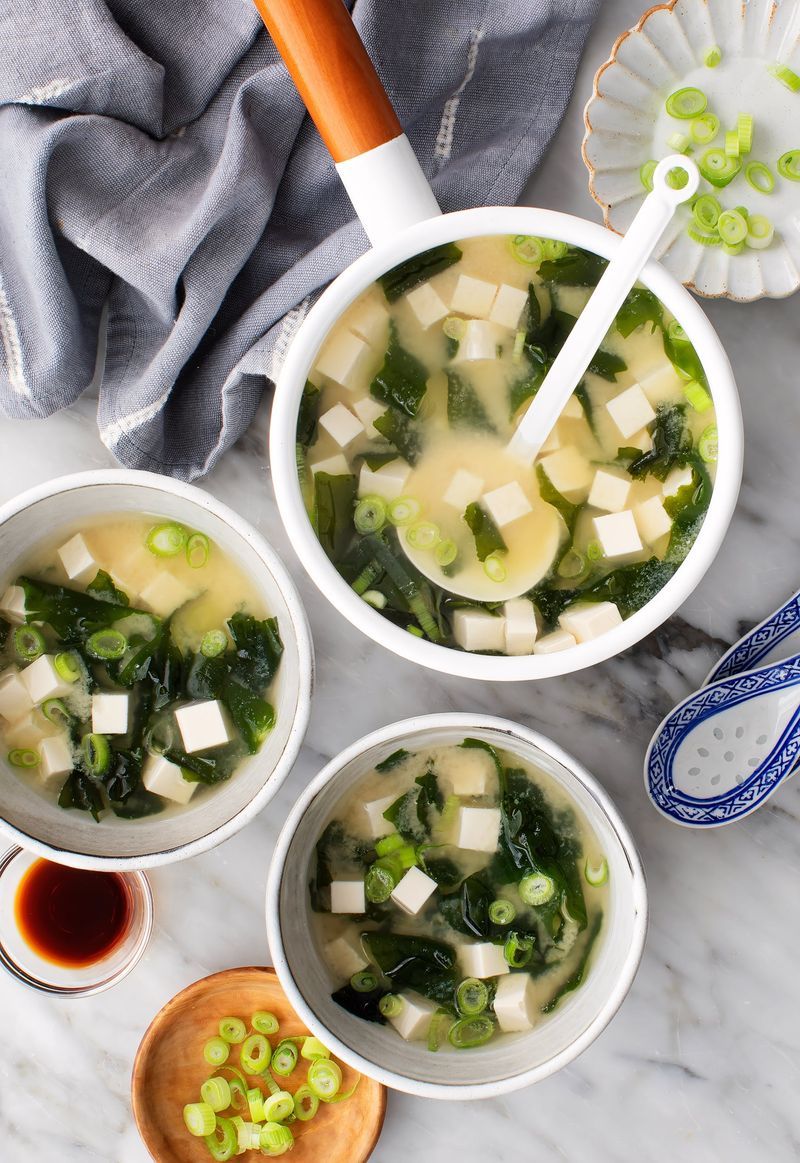
Miso is a fermented powerhouse when consumed raw, but cooking it destroys the beneficial bacteria. Used extensively in various dishes, its umami flavor is undeniably delicious. However, once it’s subjected to heat, the probiotics are lost. For those looking to gain digestive benefits, consider adding miso to dishes at the end of cooking or using it in salads and dressings where it’s not heated. By doing so, you can enjoy its rich flavor along with its probiotic advantages.
7. Sourdough Bread (Store-Bought)

Store-bought sourdough bread often lacks the fermentation benefits associated with traditional sourdough. Many commercial loaves are made using commercial yeast, which speeds up the process but doesn’t allow for the full development of probiotics. The result is bread that mimics the taste of sourdough without its digestive benefits. For those who seek the nourishment of fermented bread, look for artisanal bakeries that use wild fermentation methods, or try making your own sourdough at home to ensure it’s genuinely beneficial for the gut.
8. Raw Sauerkraut (Refrigerated)
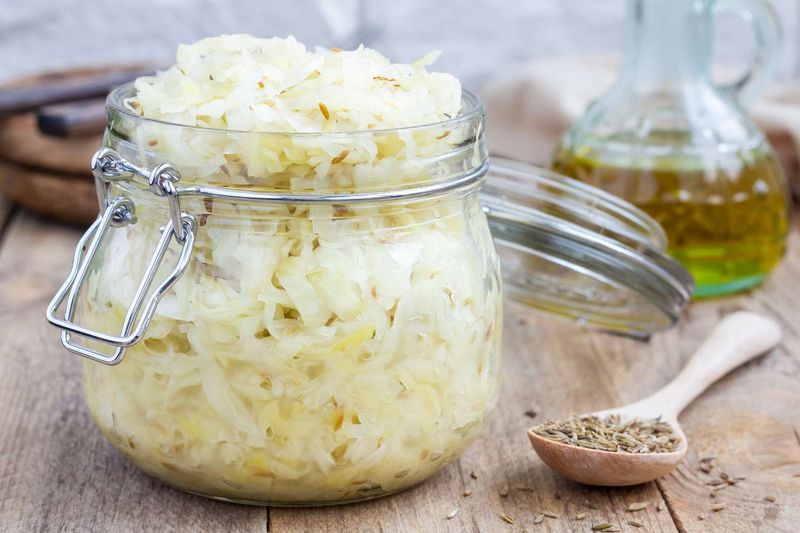
Raw sauerkraut is a tangy delight that supports gut health with live cultures and fiber. Found in the refrigerated section, it retains the beneficial bacteria lost in the pasteurization of canned varieties. Crunchy and full of flavor, it aids digestion while adding a zesty punch to dishes. Ensure the label reads ‘unpasteurized’ to guarantee live cultures. This traditional fermented food is a simple and effective way to incorporate probiotics into your diet, enhancing both flavor and digestive wellbeing.
9. Kimchi

Kimchi is a staple in Korean cuisine, celebrated for its spicy kick and probiotic richness. Made through the fermentation of cabbage, garlic, and chili, it offers a symphony of flavors that invigorate the palate. Rich in both probiotics and prebiotics, it supports digestion while delivering a burst of heat. Whether enjoyed as a side dish or incorporated into meals, kimchi brings authentic depth and nutritional benefits. Its live cultures thrive in the fridge, ready to enliven any meal with both spice and health benefits.
10. Plain Greek Yogurt (With Live Cultures)
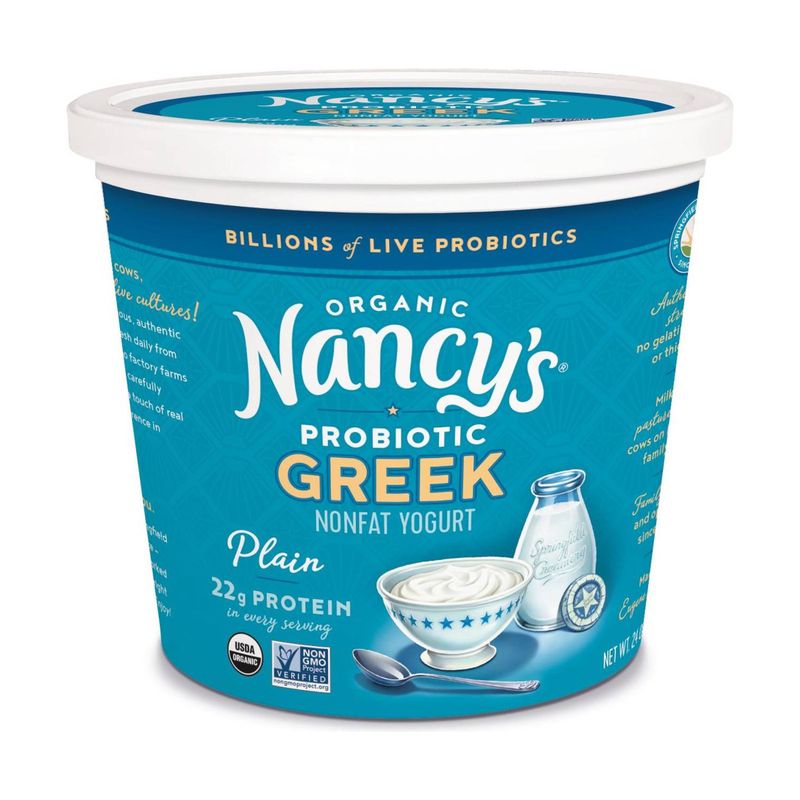
Plain Greek yogurt is a beloved choice for those seeking probiotics. Its thick and creamy texture combined with live cultures supports digestion. Low in sugar and high in protein, it offers a wholesome snack or meal addition. When selecting Greek yogurt, always check for live and active cultures on the label to ensure maximum benefits. By avoiding flavored varieties, you maintain control over sugar intake, allowing the probiotics to work their magic in promoting gut health.
11. Kefir
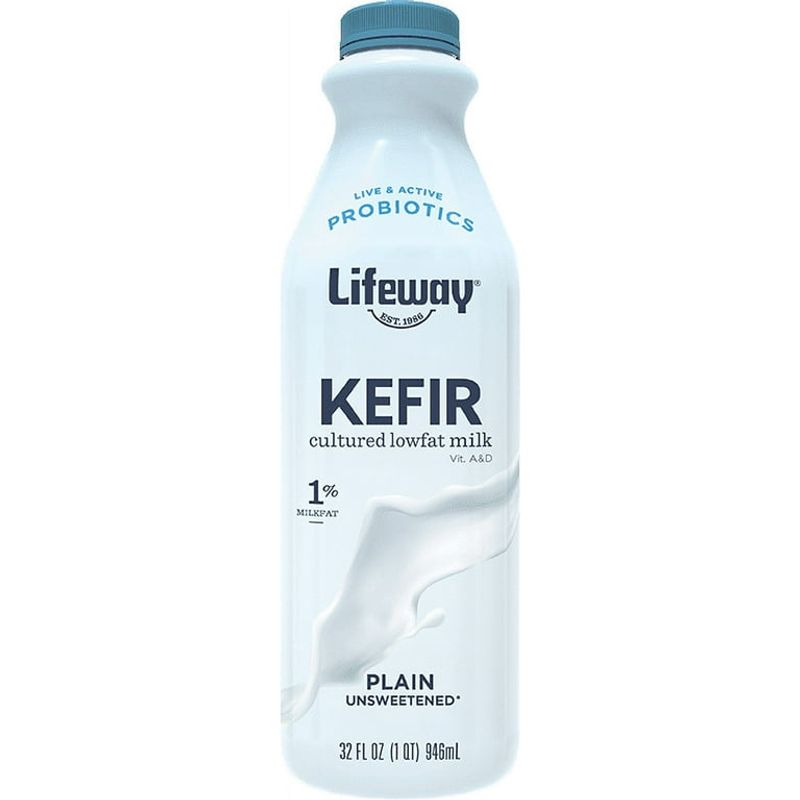
Kefir, a tangy and drinkable cousin of yogurt, is renowned for its diverse strains of bacteria and yeasts. This fermented milk beverage supports gut health with a broad spectrum of probiotics. Its slightly effervescent quality adds a refreshing twist to its creamy texture. Consumed on its own or added to smoothies, kefir offers a unique way to enhance digestive wellbeing. Its widespread popularity comes from its ability to cater to those seeking a potent probiotic source in a convenient and tasty form.
12. Tempeh
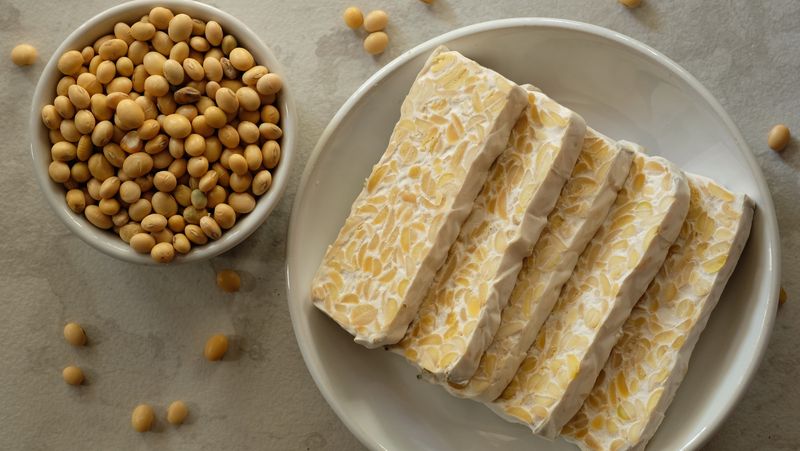
Tempeh is a protein-rich, fermented soybean product that distinguishes itself from tofu by delivering both probiotics and fiber. Its firm texture and nutty flavor make it a versatile ingredient in various dishes. Unlike its more processed counterparts, tempeh undergoes a natural fermentation process that encourages the growth of beneficial bacteria. For vegetarians and vegans, it offers not just protein but also digestive support. Whether grilled, stir-fried, or added to salads, tempeh is a nutritious choice for those mindful of gut health.
13. Natto

Natto is a traditional Japanese dish known for its distinctive sticky texture and strong flavor. Made from fermented soybeans, it boasts an impressive array of probiotics. Alongside its digestive benefits, natto is a rich source of vitamin K2, contributing to bone health. While its taste and texture might be challenging for some, its nutritional profile offers compelling reasons to give it a try. Incorporating natto into your diet can provide both gut support and unique culinary experiences.
14. Fermented Pickles (Brined, Not Vinegar-Based)
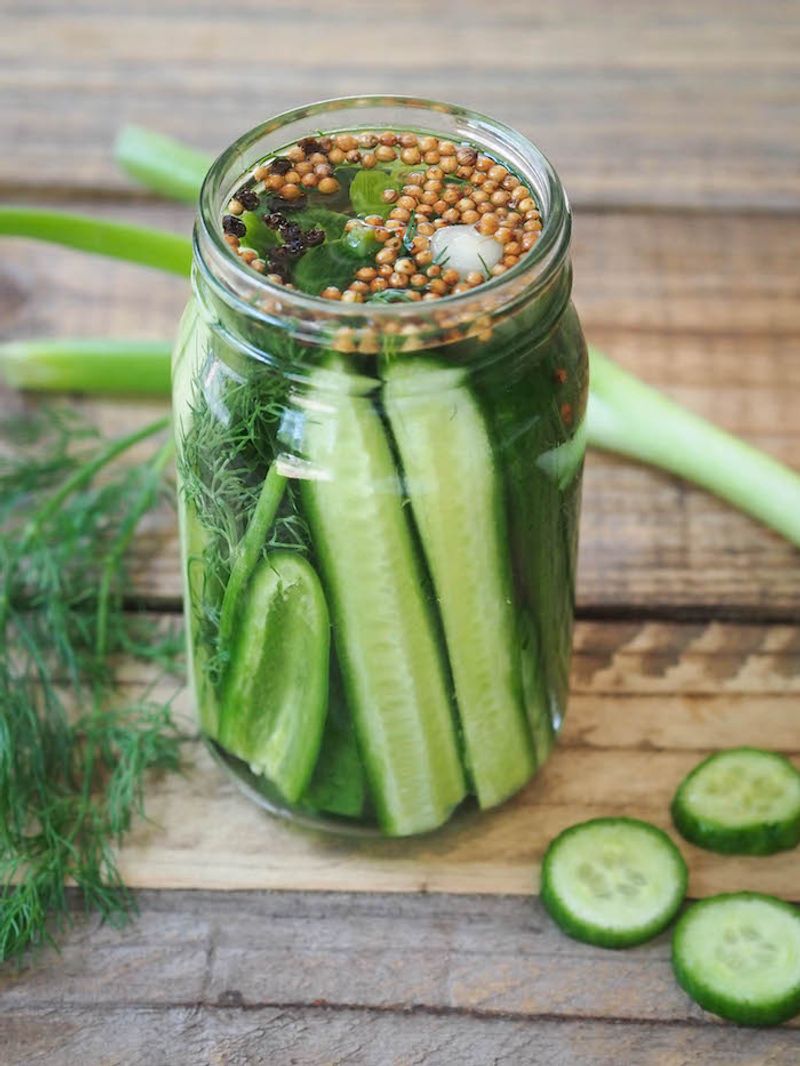
Fermented pickles, made through natural brining, offer a crunchy and probiotic-rich alternative to their vinegar-based counterparts. Stored in the refrigerated section, these pickles are made with just salt, water, and time. The traditional fermentation process fosters the growth of beneficial bacteria, supporting digestive health. Their tangy and satisfying crunch complements sandwiches and salads alike. Choosing naturally fermented pickles ensures that you’re enjoying both flavor and probiotic benefits, adding zest and vitality to your meals.
15. Coconut Yogurt with Probiotics (Unsweetened)
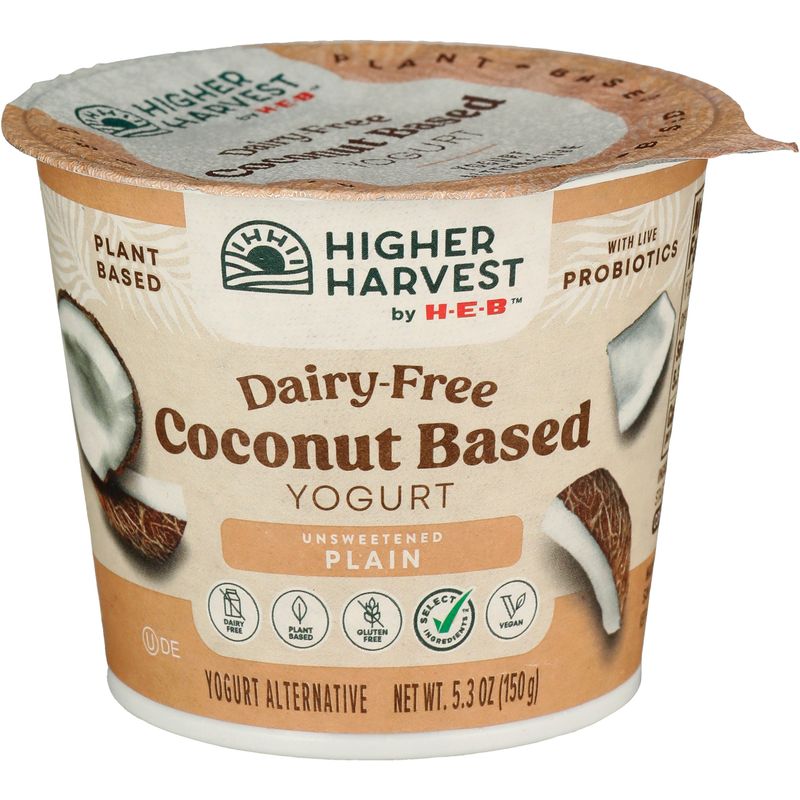
Coconut yogurt offers a delightful dairy-free alternative that’s loaded with probiotics. When unsweetened, it provides all the benefits without the downside of added sugars. Its creamy texture and mild flavor make it a versatile ingredient, suitable for both sweet and savory dishes. As a plant-based source of probiotics, it caters to those with lactose intolerance or dietary preferences. Ensure you choose varieties fortified with live cultures to maximize gut health benefits, making coconut yogurt a nourishing addition to any diet.
16. Apple Cider Vinegar (Raw, Unfiltered)
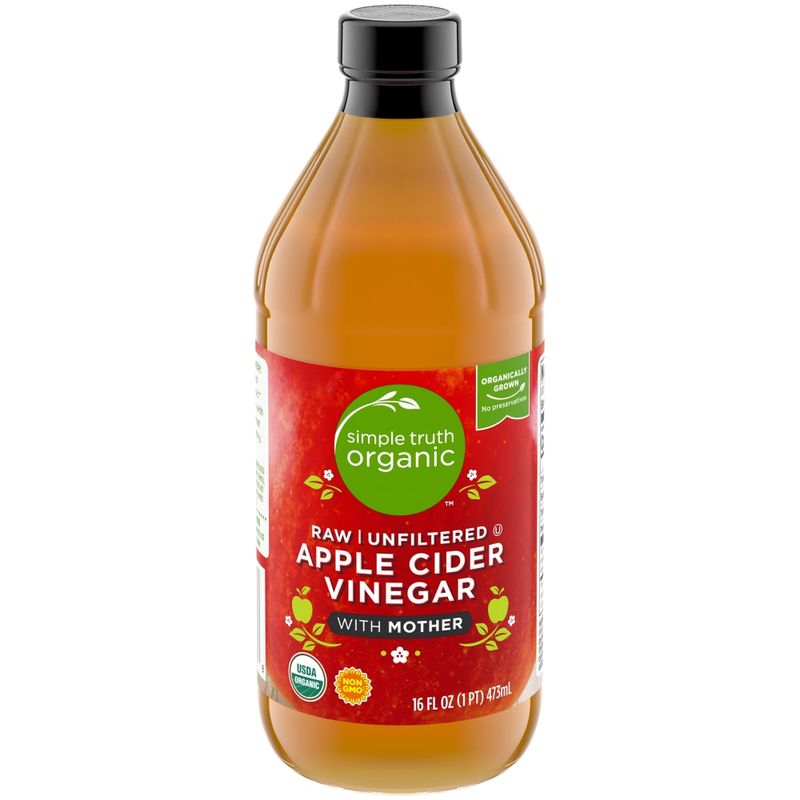
Raw, unfiltered apple cider vinegar is famed for its digestive support, especially when labeled ‘with the mother’. This cloudy substance is rich in beneficial bacteria and enzymes. A tablespoon in water before meals is believed to aid digestion, although moderation is key. Beyond its probiotic content, apple cider vinegar is a versatile kitchen staple, adding tang to dressings and marinades. While not a replacement for other probiotic foods, it serves as an adjunct in a balanced diet focused on gut health.
